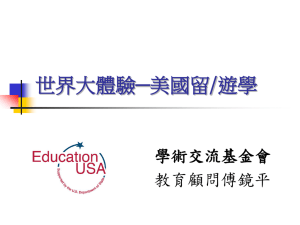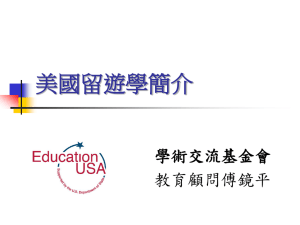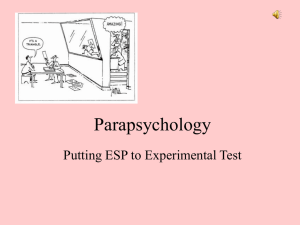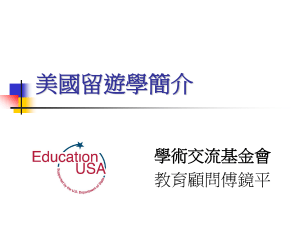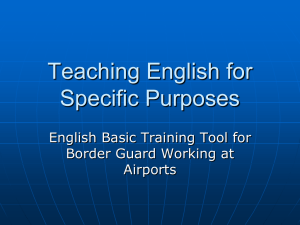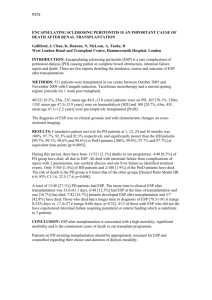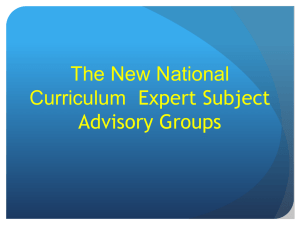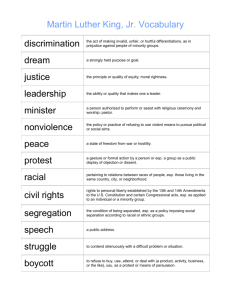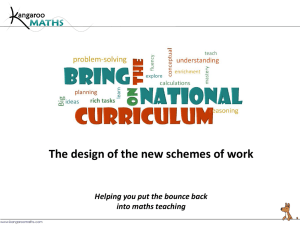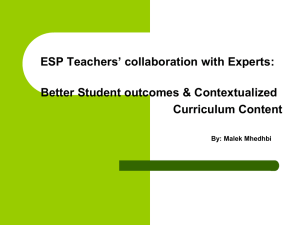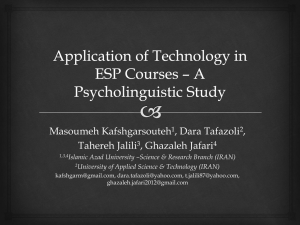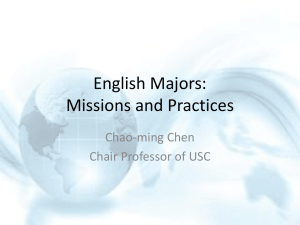Charles-Deforges-The-role-of-teachers-and-schools-in
advertisement
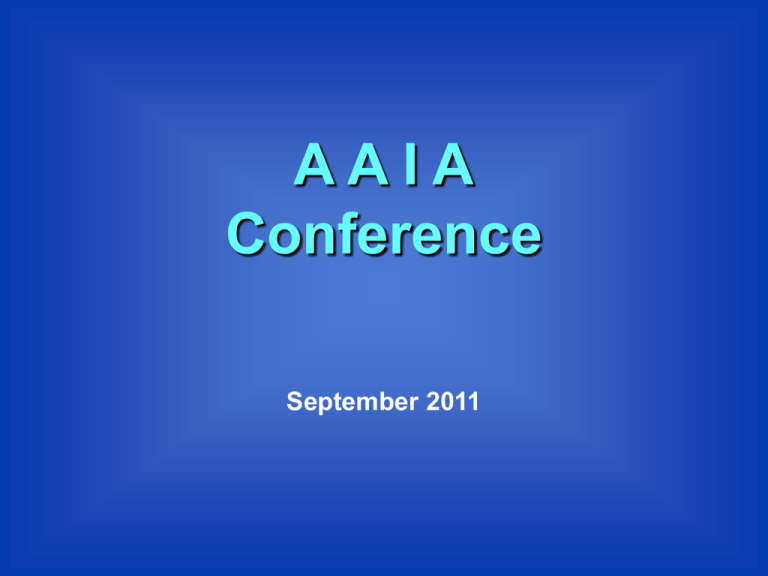
AAIA Conference September 2011 The role of teachers and schools in making learning effective Professor Charles Desforges OBE New policy context less direction more freedom respect of professionals direct accountability evidence base expected Aims - successful learners - confident individuals - responsible citizens Expert learners exhibit - the will to learn - ability to form objectives for learning (self challenging) - persistence in adversity - knowledge of learning processes - basic skills - creativity and flexibility (self informing) achievement skills attitudes values esp: esp: esp: literacy responsibility persistence citizenship learning lo ach hi Effective teaching and learning - learner centred - cognitive and metacognitive activity - learning thinking skills - AfL - effect size 0.7 sd Gap closing: school level strategies rigorous use of data raise aspirations programatically engage parents develop social/emotional competencies strong, visionary leadership c4eo.org.uk (2011) Gap closing: classroom strategies quality teaching individual coaching in specific strategies whole class ICT extensive CPD 1 to 1 tuition c4eo.org.uk (2011) Professional learning communities (Wiliam) - gradualism - flexibility - choice - accountability - support Lesson Study (1) - to improve learning experiences - through professional collaboration - focus on pupil engagement and progress Lesson Study (2) - create a study group - agree a theme - agree a focus - collaborate in lesson planning - do and review - be systematic - go systemic When does knowledge use fail? - the knowledge is not there - knowledge is there but relevance is not seen - relevance is seen but application strategy not available - strategy available but commitment lacking Teaching for knowledge use Teach: - an active knowledge base - application strategies - ‘can do’ attitude - authentic activities Learning in and out of school in school out of school individual shared general specific symbolic manipulation contextualised reasoning “How can schools enable youngsters to connect and draw from all the forces for learning at their disposal?” CPD for teachers context analysis horizon scanning development of next practices change management evidence based evaluation operating community wide partnerships spreading good practice References About learning (2006) London: Demos: www.demos.co.uk Burghes, D., and Robinson, D. (2010) Lesson study: enhancing mathematics teaching and learning, www.cfbt.com Bransford, J.D. et al (1999) How people learn. Washington: National Academy Press Improving practice and profession through lesson study (2008) www.teachernet.gov.uk/publications Wiliam, D. (2006) Assessment: learning communities can use it to engineer a bridge connecting teaching and learning. Journal of Staff Development 27, 1, 16-20 www.teachfind.com www.lessonstudy.co.uk Charles Desforges c.w.desforges@exeter.ac.uk
